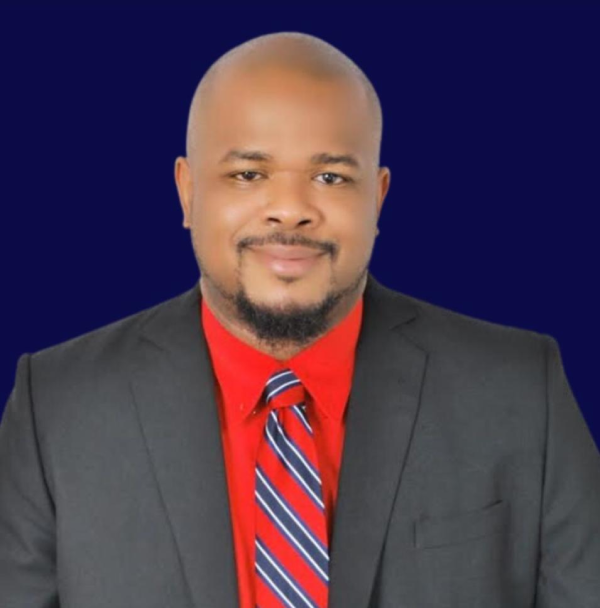
Pay Attention! Expert Calls Jamaicans to Heed Mental Wellness of Men and Boys
Mental health expert Dr Marlon Simpson is calling for urgent attention to the mental well-being of Jamaican men, highlighting the critical need for safe spaces, stigma reduction, and greater understanding of burnout and how males express their emotions.
Speaking during a recent meeting of the JN Circle Corporate Area Chapter, the consultant psychiatrist, attached to the Bellevue Hospital, painted a sobering picture of the mental health challenges facing men in Jamaica. He revealed that the male wards at the country’s leading psychiatric facility are often filled to capacity, with three male wards for every female one, a stark indicator of the disproportionate mental health burden borne by men.
“A lot of the men who come in say the first time they actually felt heard was when they came to the hospital,” the consultant shared. “Many of them had no avenue to talk; no one was listening, and no one provided support.”
Mr Simpson was addressing members of the JN Circle on the topic ‘Men’s Mental Health, Continuing the Conversation’, which was held in observation of Men’s Mental Health Month, which was observed in June.
He noted that the methods men use when facing mental health crises are often more drastic, reflecting a deep sense of hopelessness and a reluctance to ask for help. “It’s not just about stress,” he said. “It’s about feeling like there’s no point in trying anymore. That’s why burnout can be a gateway to more serious mental health conditions, including depression, anxiety, and even suicide.”
He described burnout as more than just tiredness. “It’s a chronic emotional state, a sense that you’re not accomplishing anything of value and even what you have done doesn’t matter. It can lead to a breakdown in physical, social, and emotional functioning.”
Burnout symptoms include irritability, emotional detachment, insomnia, physical pain with no medical explanation, and withdrawal from family and friends. In men, this often presents as aggression, absenteeism, or substance abuse, sometimes involving dangerous combinations of drugs including marijuana, alcohol, Molly (ecstasy), and even embalming fluid (formaldehyde).
Cultural norms were identified as a major barrier to men seeking help. “In our society, when a man says he needs help, the reaction is often one of mockery or dismissal,” Mr Simpson said. “We have to unlearn that. Men internalise a lot, and it builds up like a pressure cooker until there’s an explosion, not always outward, but inward, leading to breakdowns, mental illness or worse.”
The speaker recounted the case of ‘James’, a male manager who became increasingly irritable, aggressive, and withdrawn. Initially resistant to therapy, James later admitted how much he needed space to talk. “Now he’s the one scheduling sessions and asking for more,” the consultant said. “It shows how powerful support and safe spaces can be.”
Importantly, he emphasised that the workplace has a role to play. He said at Bellevue Hospital, members of staff can now request mental health days, flexible work arrangements are encouraged, and managers are being trained to recognise signs of burnout without penalising affected employees.
“Support in the workplace should go beyond referring someone to a company therapist,” he added. “It includes helping employees find external, confidential support they can trust.”
He also recommended changing how we frame mental health conversations. “Instead of saying, ‘Go get help,’ we should say, ‘Let’s talk to someone who can help us understand what’s going on.’”
He ended the presentation with a powerful call to action: “Take off the mask. To thine own self be true. Talking, even just a little, can make all the difference. But we need judgement-free zones where people feel safe enough to do that.”
With men still under-represented among therapists in Jamaica and cultural stigma remaining strong, the expert called on Jamaicans to change the narrative, one conversation at a time.
“Burnout is real. The silence around men’s mental health must end,” he concluded. “Listening can save lives.”
The JN Circle is a global network of JN members and customers who leverage the JN Group’s resources to serve as advocates and community change agents. With 17 chapters spanning all 14 parishes and active groups in Toronto, Canada, and London, England, the JN Circle continues to make meaningful contributions to community development.
Check out more stories like this

Leadership Transition at JN Bank
A Statement from Hon. Earl Jarrett, OJ Deputy Chairman and...

JN Supporting MSME Recovery from Melissa
Micro and small businesses devasted by Hurricane Melissa are set...

Renting a Property? Five Reasons to Get a Signed Rental Agreement
You found a nice home in a great location, and...